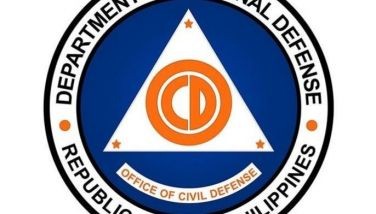Rody on drug killings: I take full responsibility
MANILA, Philippines - Saying he never denied giving orders on anti-drug operations, President Duterte on Friday maintained that he would take full responsibility for the killings attributed to the government’s brutal drug war.
“I never denied that I ordered the operations. I declared war on drugs. I take full responsibility, legal or otherwise, for that order,” Duterte said during a press conference in Cagayan de Oro City.
He issued the statement after the New York-based Human Rights Watch (HRW) accused him of being criminally liable for the extrajudicial killings that have reached over 7,000 since the administration launched the war on drugs in June last year.
“Human rights, pumunta ka nga dito, pinapasagot mo ako (Come here, Human Rights Watch, if you want me to respond),” Duterte said.
“Bakit nila sinasabing it’s illegitimate? Bakit, masama bang sabihin papatay ako ng tao para sa bayan ko (Why are they saying it’s illegitimate? Why, is it wrong to say that I will kill for my country)? Tell me, is there a crime? It’s a warning actually to stop (the drug traffickers),” he added.
The President reiterated that he ordered the police and the Armed Forces of the Philippines to take part in the campaign against illegal drugs.
“Lahat ’yung namatay sa engkwentro, sagot ko ’yun, ako ang magpakulong doon. Klaro ’yan. Huwag mo akong bintangan na kung sino-sinong pinatay diyan na – akin ’yun (All those who died in encounters, I am answerable for them. I may be jailed for them. That’s clear. Do not accuse me of just killing people). You know, I answer for my deeds or misdeeds if you may,” he said.
Duterte vowed to run after the drug syndicates that continue to destroy the country.
He also reiterated his support for the police and military officers who were charged for drug-related killings.
The HRW on Thursday released a report, titled “License to Kill,” which detailed specific cases of extrajudicial killings allegedly perpetrated by police.
The group accused Duterte of being accountable for the killings.
He called on the human rights group and the church to go to the police and ask for a list of drug pushers and users and ask them to stop using drugs.
Duterte said around 3,000 municipal mayors, 6,000 policemen and 40 percent of barangay captains in the country are involved in the illegal drug trade.
New Tokhang strategies
The Philippine National Police will employ new strategies when it revives the campaign against illegal drugs, PNP chief Director General Ronald dela Rosa said yesterday.
Last month, President Duterte announced the revival of the government’s war on drugs following reports that drug rings have resumed operations after the PNP suspended Oplan Tokhang.
Dela Rosa said local police stations would be authorized to conduct anti-drug operations in coordination with barangay officials.
“Led by the police chief, members of the local police station will go to the barangays,” he said in a radio interview.
According to Dela Rosa, the police commander and barangay chairman will visit the houses of suspected drug personalities to convince them to undergo rehabilitation.
Police officers should be in complete uniforms when implementing Tokhang.
Dela Rosa said the police chief would be held accountable if drug suspects were killed by police under questionable circumstances.
He said police operating units from the PNP headquarters would no longer take part in the anti-drug campaign.
NCRPO to revisit drug surrenderees
National Capital Region Police Office (NCRPO) chief Director Oscar Albayalde said they would revisit identified barangays with drug surrenderees for assessment.
At least 260,000 drug suspects have surrendered to police since the government started the campaign against drugs, Albayalde said.
Albayalde said the drug surrenderees would be evaluated before they undergo rehabilitation.
With the resumption of the anti-drug campaign, Albayalde said the NCRPO would focus on sending drug dependents to rehabilitation centers.
UN body condemns EJK
An international body tasked to implement United Nations drug conventions has cautioned governments against using extrajudicial means to address the illegal drugs problem.
In a report released on Thursday, the International Narcotics Control Board (INCB) expressed concern over the drug-related killings allegedly committed by law enforcement personnel.
“In some instances, those acts have been committed with the expressed or tacit approval, or even encouragement, of political forces and, in many cases, have gone unpunished,” the report read.
While the board did not cite specific cases, the report appeared to be referring to the bloody drug war of the Duterte administration.
More than 7,000 people have been killed in the anti-drug campaign, including 2,000 during police operations.
Police claimed that the drug suspects were killed because they fought back during legitimate operations.
Various groups, including the Commission on Human Rights, have questioned the “nanlaban” explanation of the police and pushed for a thorough investigation into drug-related deaths.
In its report, the INCB said that extrajudicial targeting of drug suspects was in violation of three international drug control conventions, Universal Declaration of Human Rights and the International Covenant on Civil and Political Rights.
The INCB called on the governments to put an end to extrajudicial killings and conduct investigation of those involved in drug-related deaths.
DepEd seeks drug-free schools
Meanwhile, the Department of Education has created a committee that will formulate a drug testing program for DepEd officials, employees and teachers.
Education Secretary Leonor Briones tapped undersecretary for legal and legislative affairs Alberto Muyot and assistant secretary Nepomuceno Malaluan to co-chair the committee, which is tasked to ensure a drug-free workplace in all DepEd offices and public schools nationwide.
Briones directed members of the committee to formulate a drug testing program in accordance with the provisions of Republic Act 9165, the Comprehensive Dangerous Drugs Act.
The panel will oversee the implementation of an anti-drug abuse policy in the department, as well as initiate training and awareness programs for DepEd officials and employees.
The committee was also tasked to adopt value formation, family enhancement and other related programs.
“The DepEd is committed to strengthen its programs against illegal drugs by complementing its existing National Drug Education Program with a comprehensive policy against drug abuse in the workplace,” Briones said.
Last week, the department announced its plan to conduct random drug testing for high school students.
DepEd officials will undergo orientation in April in eight different clusters to provide awareness on the legal and regulatory aspects of the drug testing.– With Emmanuel Tupas, Robertzon Ramirez, Janvic Mateo
- Latest
- Trending




























